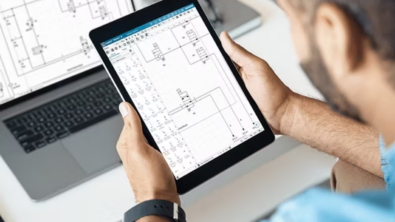3 Questions on Capital Embedded AR Classic

The Capital embedded solution is a scalable AUTOSAR development platform, with tools and embedded runtime software for on-time product deployment. It provides implementations to the AUTOSAR Classic and AUTOSAR Adaptive standards to embed software into highly complex automotive designs.
As the number of electric and electronic (EE) features in today’s innovative automotive products increases, the trend toward distributed development is gaining momentum, creating challenges for developers in terms of collaboration and data sharing. And this trend is likely to continue to accelerate – McKinsey predicts that software will make up 30% of total vehicle content by 2030.
To answer market demand, OEMs are turning to embedded software development, leveraging a model-based systems engineering (MBSE) approach that supports early ECU validation and verification to speed time to market.
Here are some questions to consider, and answers given in a recent webinar: Accelerating embedded software development in the automotive industry: Enabling embedded software development with the right verification tools
Q. How do OEM in-house platforms impact the E/E development cycle?
A: OEM in-house platforms point to an important industry trend for in-house development that requires a tight collaborative relationship between the tier-one suppliers that are manufacturing the actual hardware and the OEMs that are the developing partner for the software. A key requirement is that the solutions they use are compliant with the AUTOSAR standard and support virtual verification platforms for that complex integration.
Q. How does Capital Embedded development support the digital twin?
A. AUTOSAR models are focused on software reusability. Since Capital is a model-based system, the models can be exchanged between different hardware platforms. The tooling and the configuration of these executable solutions can then be verified on different hardware. The tooling provides a solution tailored to that hardware, and the digital twin verification can be used for validation.
Q. How does Capital Embedded integrate with other products such as Polarian?
A: Capital has tight integrations to the Siemens product line, including Polarian, Siemens’ application lifecycle management solution. The AUTOSAR model requirements can be captured in Polarion, and requirements tracking is then facilitated in the embedded tooling. We extract that from the Polarion integration, and any mismatched data or configuration issues are highlighted, then reported back into Polarian for analysis.
Siemens Capital Embedded software design flow is data-centric and built upon a data and process backbone, enabling a high degree of automation, data coherency, and integration with adjacent domains.
Dive deeper with these related assets:
Check out our whitepaper →Accelerating embedded software development for automotive products: Providing functionality beyond basic software configuration with Capital
Watch the webinar NOW → Accelerating embedded software development in the automotive industry: Enabling embedded software development with the right verification tools


